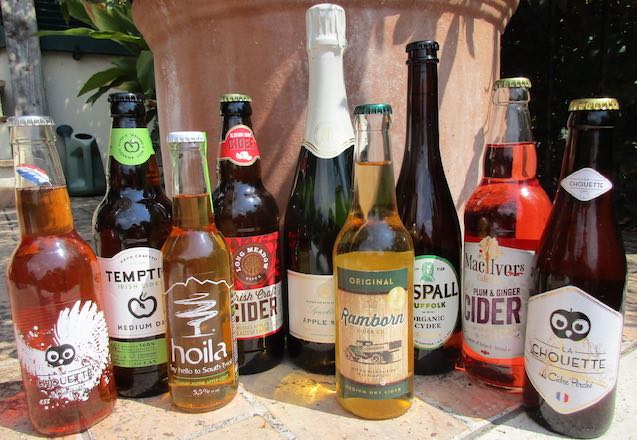Conversational Italian: Small Talk and Social Phrases for Making Friends
Small talk plays a significant role in initiating and maintaining social interactions. In Italian culture, mastering small talk can be a valuable asset in building connections and making friends. By understanding basic social phrases and engaging in casual conversations, you can create a positive impression and establish meaningful relationships. Here, we will explore the importance of small talk, basic social phrases, small talk topics, and the art of building connections through conversation.
To start off, let’s delve into the importance of small talk. Small talk serves as a way to establish rapport, create a comfortable atmosphere, and show interest in the other person. It helps break the ice and allows for a gradual transition into deeper conversations. Mastering small talk in Italian can open doors to new friendships and connections.
Basic social phrases are essential tools in any small talk conversation. These phrases encompass greetings, introductions, asking about someone’s day, talking about interests and hobbies, and seeking recommendations. Learning these phrases will enable you to engage in meaningful conversations and make a positive impression on others.
When engaging in small talk, having interesting topics is crucial. Talking about the weather, food and drinks, travel experiences, and pop culture can provide common ground and initiate engaging conversations. These topics can help you find shared interests and create a sense of connection with others.
Building connections through small talk involves active listening, responding, and using body language and non-verbal cues effectively. Active listening shows genuine interest in the conversation, while responding thoughtfully allows for meaningful dialogue. Using appropriate non-verbal cues and body language can enhance communication and strengthen connections.
Understanding social etiquette is essential when engaging in small talk in Italian culture. Showing respect and politeness through proper greetings, using formal pronouns, and demonstrating cultural awareness can help you navigate social situations with ease. Being aware of gestures and customs specific to Italian culture can help you communicate effectively and avoid misunderstandings.
By mastering conversational Italian, focusing on small talk, and incorporating these social phrases and techniques, you can confidently engage in conversations, make friends, and create lasting connections. So, let’s dive into the world of conversational Italian and embrace the art of small talk!
Importance of Small Talk
Engaging in small talk may seem trivial, but it plays an important role in building connections with others. By initiating light conversations, we create a welcoming and friendly environment. Small talk not only helps us establish rapport but also allows us to gather information and learn about different cultures. It can serve as an icebreaker in professional settings, leading to meaningful connections and potential opportunities. So, next time you find yourself in a social situation, don’t underestimate the importance of small talk. Remember, even the smallest conversation can lead to amazing possibilities. Pro-tip: Be genuinely curious and attentive, and always find common ground to initiate small talk effectively.
Basic Social Phrases
Discover the key to effortlessly engaging in social interactions and building friendships with Conversational Italian: Small Talk and Social Phrases for Making Friends. In this section, we dive into the realm of basic social phrases that will enable you to navigate various scenarios with ease. From friendly greetings and introductions to satisfying your curiosity about someone’s day, discussing interests and hobbies, and even seeking recommendations, these essential phrases will equip you with the perfect conversational tools for forging connections and enriching your social interactions.
Greetings and Introductions
When engaging in small talk in Italian, it’s vital to be familiar with greetings and introductions. These expressions serve as conversation starters and assist in establishing a connection with others. In terms of useful vocabulary, you can use “Ciao” to say “Hello” or “Goodbye,” “Come ti chiami?” to ask someone’s name, and “Piacere di conoscerti” to express “Nice to meet you.” By incorporating these phrases, you can confidently approach new individuals and leave a friendly impression. Interestingly, in Italian culture, it is customary to greet each person individually rather than using a general greeting for a group.
Asking About Someone’s Day
When engaging in small talk and building connections in Conversational Italian, it is important to incorporate the keywords naturally by asking about someone’s day. This shows genuine interest and helps initiate conversation. By asking “Come è stata la tua giornata?” (How was your day?), you can create a friendly atmosphere and lead to meaningful discussions. Asking about someone’s day demonstrates that you care about their well-being and are open to hearing about their experiences. It also provides an opportunity for the other person to share any exciting events, challenges, or achievements they may have encountered throughout their day.
Talking about Interests and Hobbies
When engaging in small talk in Italian, talking about interests and hobbies is a great way to connect with others. Here are some conversation starters to discuss hobbies and interests:
- What are your hobbies? (Quali sono i tuoi hobby?)
- Do you have any special interests? (Hai qualche interesse particolare?)
- What do you enjoy doing in your free time? (Cosa ti piace fare nel tempo libero?)
- Are you into sports? If yes, which ones? (Sei fan di qualche genere musicale o artista in particolare?)
- Are you a fan of any particular music or artists? (Sei fan di qualche genere musicale o artista in particolare?)
Knowing these phrases can help spark interesting conversations and make new friends. Don’t be afraid to share your own hobbies and interests, and be open to learning about others as well.
Asking for Recommendations
When engaging in small talk conversations, asking for recommendations is a great way to show interest and start a meaningful discussion. Here are some tips for asking for recommendations:
- Be specific: When asking for recommendations, instead of being vague, ask about a specific topic or category.
- Be open-minded: When asking for recommendations, listen attentively and be receptive to the suggestions, even if they are not what you originally had in mind.
- Provide context: When asking for recommendations, give some background information about your preferences or interests to help the other person tailor their recommendations.
- Show appreciation: When asking for recommendations, remember to thank the person for their suggestions and let them know if you plan to follow up on any of them.

Stop reading, start speaking
Stop translating in your head and start speaking Italian for real with the only audio course that prompt you to speak.
True story: I once asked a local for restaurant recommendations while traveling in Italy. Their suggestion led me to a hidden gem with the most delicious pasta I have ever tasted. Asking for recommendations truly enhanced my travel experience.
Small Talk Topics
Looking to make conversation in Italian? Dive into the world of small talk topics, where we’ll cover everything from discussing the weather to sharing culinary delights. Explore the wonders of travel and immerse yourself in the realm of pop culture as we navigate the art of engaging in delightful chitchat. Get ready to break the ice and foster connections effortlessly with these conversational gems!
Talking about Weather
When engaging in small talk in Italian, one common topic is talking about the weather. It serves as a neutral and easy way to initiate a conversation. You can use phrases like “Che bel tempo oggi!” (What nice weather today!) or “Fa caldo/freddo qui!” (It’s hot/cold here!). Talking about the weather can help you connect with native Italian speakers and initiate a friendly conversation. In fact, I remember when I visited Italy and started a conversation with a local by talking about the sunny weather. It led to a pleasant exchange where we shared recommendations for outdoor activities in the beautiful Italian countryside.
Talking about Food and Drinks
During my trip to Italy, I struck up a conversation with a local at a café about talking about food and drinks in Italian culture. They recommended I try the classic dish, spaghetti carbonara, and even shared a recipe with me. It was a delightful exchange that led to a memorable culinary experience.
Talking about Travel
When engaging in small talk in Italian, talking about travel is a great way to connect with others. Here are some phrases and topics to consider:
| – “Hai mai viaggiato in Italia?” (Have you ever traveled to Italy?) |
| – “Qual è stata la tua destinazione preferita?” (What was your favorite destination?) |
| – “Di solito preferisci le città grandi o i paesini?” (Do you usually prefer big cities or small towns?) |
| – “Quali sono i luoghi che hai visitato di recente?” (What are some places you have visited recently?) |
| – “Cosa ne pensi dei viaggi avventurosi?” (What do you think about adventurous trips?) |
By discussing travel experiences and preferences, you can establish a common ground with new acquaintances and potentially discover shared interests. It’s an excellent conversation starter to cultivate meaningful connections.
Talking about Pop Culture
When engaging in small talk in Italian, talking about pop culture can be a great way to connect with others. Some conversation starters include asking about favorite movies, TV shows, or music artists. You can also discuss recent books, upcoming concerts, or current trends in fashion and entertainment. By sharing your own preferences and asking others about theirs, you can build rapport and find common interests. Pop culture is a universal topic that can provide a fun and casual atmosphere for conversations, allowing you to connect with new friends and expand your cultural knowledge.
In the 1980s, talking about pop culture in Italy was heavily influenced by the emergence of television programs, music videos, and fashion trends. Italian singers and bands like Sanremo and Riccardo Cocciante dominated the music scene, while popular TV shows like “Drive In” and “Fantástico” entertained audiences with their comedic sketches and music performances. The fashion industry also thrived during this time, with Italian designers like Giorgio Armani and Versace making waves in the international fashion world. Talking about pop culture in Italy continues to evolve and showcase the country’s unique blend of tradition and modernity.
Building Connections through Small Talk
In the world of conversational Italian, building connections through small talk is key. Get ready to dive into the art of forming meaningful connections through our exploration of active listening and responding, as well as the subtleties of using body language and non-verbal cues. Word on the street is, these techniques are proven to make you a small talk pro and help you make friends effortlessly. So, let’s unravel the secrets of mastering the art of small talk together!
Active Listening and Responding
Active listening and responding are essential skills for engaging in meaningful conversations in Italian. Here are some steps to enhance your active listening and responding abilities:
- Focus on the speaker: Pay attention to the speaker’s words, body language, and tone of voice.
- Avoid interruptions: Allow the speaker to finish their thoughts before responding.
- Show interest: Use verbal and non-verbal cues, such as nodding and maintaining eye contact, to demonstrate your attentiveness.
- Ask clarifying questions: When the speaker finishes, ask questions to ensure your understanding of their message.
- Reflect and summarize: Repeat or paraphrase what the speaker said to confirm your comprehension and show that you were actively listening.
- Respond appropriately: Provide thoughtful and relevant responses that contribute to the conversation.
Pro-tip: Remember that active listening and responding show respect and can help solidify connections with native Italian speakers.
Using Body Language and Non-Verbal Cues
Using body language and non-verbal cues can significantly enhance your small talk skills in Italian. Incorporating these techniques can greatly improve your communication. Here are a few ways to do so:
- Employ eye contact to demonstrate interest and attentiveness.
- Remember to smile to convey friendliness and warmth.
- Signal understanding and agreement by nodding your head.
- Create a welcoming atmosphere with open and relaxed body postures.
- Emphasize key points or express emotions by gesturing with your hands.
Remember, non-verbal cues hold just as much importance as spoken words in effective communication. Paying attention to your body language and using it effectively can help you establish connections and foster meaningful conversations.
Pro-tip: Practice mirroring the body language of the person you are conversing with, as it can create a sense of rapport and comfort.
Social Etiquette in Italian Culture
Italian culture is known for its rich social customs and traditions. In this section, we will dive into the intriguing world of social etiquette in Italy. From displaying respect and politeness to understanding the significance of gestures and customs, we’ll uncover the secrets to navigating social interactions in Italian culture. So, whether you’re planning a trip to Italy or simply curious about the cultural intricacies, buckle up and get ready to explore the unwritten rules of Italian social graces.
Showing Respect and Politeness
When engaging in small talk in Italian, it is crucial to demonstrate respect and politeness. It is important to incorporate various gestures and customs from the Italian culture to achieve this. One example is greeting others warmly with a kind “buongiorno” or “buonasera” to show respect. Another polite gesture is using proper titles such as “Signore” or “Signora” when addressing someone. Italians truly appreciate good manners, so it is essential to say “grazie” (thank you) and “prego” (you’re welcome). By displaying respect and politeness during conversations, you can make a positive impression and establish a strong rapport with native speakers.
Gestures and Customs to be Aware of
When engaging in small talk in Italy, it is important to be aware of the gestures and customs that are considered polite and respectful. Italians are known for their expressive body language, which can greatly enhance communication. To navigate social interactions in Italy with grace and respect, it is crucial to understand the appropriate use of gestures. This awareness will ensure that you avoid any misunderstandings. For example, being conscious of the fact that touching someone’s head is considered disrespectful and that the “okay” hand gesture can be offensive will help you maintain respect. Additionally, Italians value personal space, so it is important to remember not to stand too close to someone during a conversation. By incorporating these gestures and customs into your interactions, you can engage in small talk in Italy confidently and respectfully.


.jpg)



